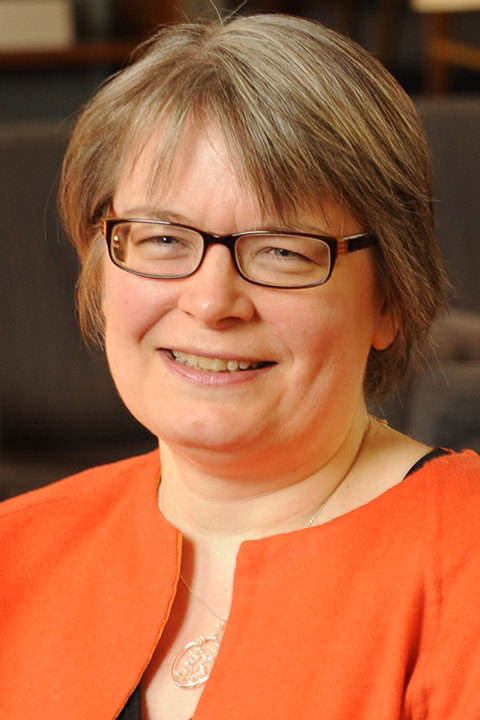German Language & Literature
Columbia University Libraries supports research in both the historical and literary aspects of German language, literature, and culture, including the teaching of basic and advanced language skills, the history of the German language and its dialects, Germanic philology, the detailed study of the spectrum of Germanic literature from medieval vernacular poetry to 21st-century fiction and poetry, and the history of German-speaking Europe from the Middle Ages to the present. Collection suggestions from students, faculty, and researchers are welcome.
Columbia’s German-language collections represent two and a half centuries of collecting and donating and reflect the strengths of both the donations as well as the emphases of curricular and research among the scholars and students. Earlier periods of collecting focused on philology and the works by and about the “classic” writers of German literature, above all Goethe and Schiller. A major highlight of this early collecting is the Goethe Collection. More recent collecting (since the 1950s) has focused more broadly on modern German literature from a wide range of regions and traditions. Additional collection strengths, reflecting priorities of our faculty over the last several decades, are critical theory, gender and sexuality studies, critical race theory, film theory, cultural studies, media studies, and memory studies.
Rare and unique items in the German language from the late medieval period to the present are held in the collections of the Rare Book & Manuscript Library (RBML). Relevant materials in religious history and theology are located at the Burke Library at Union Theological Seminary; works of art history and architecture are at Avery Architectural & Fine Arts Library; the social sciences and some history are housed in the Lehman Social Sciences Library; and music materials may be found at the Gabe M. Wiener Music & Arts Library.
a. Undergraduate
Students studying German at all levels in the Department of Germanic Languages.
Students studying German literature and culture in the Department of Germanic Languages, in both German and English.
Students in other departments across the humanities and social sciences studying topics related to German literature, theater, film, art, philosophy, history, social sciences, etc.
b. Graduate and Professional Schools
Graduate students in the Department of Germanic Languages.
Graduate students in the Department of History.
Graduate students studying topics related to Germany, Austria, Switzerland, or other German-speaking communities, or related to German culture and language.
c. Institutes, Interdisciplinary Programs, etc.
Institute for Comparative Literature and Society; Council for European Studies; Heyman Center for the Humanities; European Institute; Center for International History; Society of Fellows in the Humanities.
d. Course Reserves
Selection for course reserves is up to individual faculty members. The Librarian will do whatever is possible to secure specific materials absent from the collection.
a. Print
Critical as well as commercial and other editions of all canonical works (classics) are sought, in German and, when available, in English, for the Butler stacks. Works of criticism are for the most part collected either in German or English, although other major European languages are also included if no translation into either German or English is available. Contemporary works of fiction, poetry, and drama are collected in German and frequently also in English. In-depth coverage of the German language—its history, grammar, lexicography and philology—is maintained. Anthologies of German literature, as well as certain editions of canonical authors such as Goethe and Schiller, are additionally located in the Comparative Literature & Society Reading Room (615 Butler Library). In addition, canonical works of literary criticism, history, theory, and philosophy can be found in the Moral & Political Theory Reading Room (504 Butler Library). Classic works of literature in English translation, as well as works of literary criticism and history in English, are housed in the Milstein Undergraduate Library on the second, third, and fourth floors of Butler Library.
b. Digital Collections
Columbia University Libraries offers an extensive variety of electronic resources. In German, we provide an array of commercially available databases including German Literature Collections, Germanistik Online Datenbank, Kritisches Lexikon zur deutschsprachigen Gegenwartsliteratur, German Folklore and Popular Culture, Jahresberichte fuer deutsche Geschichte, Nietzsche Online, and Early European Books Online, all of which provide researchers with access to thousands of e-books, thousands of primary source documents and images, and hundreds of e-journal subscriptions. These electronic resources complement the print collections and substantially enhance the range of German-language content available to researchers at Columbia. Datasets and websites are not currently collected but suggestions from researchers are welcomed.
c. Media
Over 1,600 German videos, primarily feature films and documentaries on DVD and VHS, are available in the Butler Media Collection. The Librarian for Butler Media, Film Studies, & Performing Arts is primarily responsible for collecting German materials in these areas, including acquiring streaming databases like Independent World Cinema: Classic and Contemporary Film. The Music & Arts Library maintains impressive collections of audio recordings, sheet music, and scholarship on music in German-speaking countries and communities, including the lives and works of Austrian, German, and Swiss composers.
d. Languages Collected
The primary languages collected are German and English. Secondary scholarship in French is also regularly collected. German dialects are not collected except when absolutely necessary for research and teaching needs.
e. Chronological Focus
Middle Ages (vernacular literature only) to the present day.
f. Geographical Focus
Germany (both contemporary and historical areas), Austria (both contemporary and historical), and Switzerland are the primary focus. Other European countries with German-speaking populations, i.e. Switzerland, Italy, Belgium, Luxembourg, Liechtenstein, Romania, and elsewhere, are collected selectively.
g. Imprint Dates Collected
The main focus of collecting is current and recent (+/- five years) imprints. When antiquarian acquisitions are offered via gift or purchase, no specific chronological ranges are established in advance; rare or unique materials from any period may be considered.
Columbia’s distinctive and special collections in German language and literature are and varied. Most of the collection consists of rare books. Among archival items some highlights include the Shocken Books - Franz Kafka Papers and the Otto Rank Papers. Please see the Rare Book & Manuscript Library’s “What We Collect” page for further detail on collection strengths and scope.
a. Consortia and Collaborative Collecting with Other Institutions
The range of print materials focusing on the subject field of German studies is greatly enhanced by Columbia’s participation, with Harvard University, Princeton University, and The New York Public Library, in a shared off-site storage facility (ReCAP); Borrow Direct; and the Manhattan Research Library Initiative (MaRLI), a partnership with New York University and The New York Public Library.
b. Location Decisions and Selection for ReCAP
Almost all new arrivals in German literature, German literary criticism, and German linguistics are shelved in the Butler stacks. Canonical works of critical theory and anthologies of German literature can be found in the Comparative Literature & Society Reading Room (615 Butler Library).
Duplication of titles is limited to works identified by faculty as being central to a specific course. In these cases, no more than a few copies are obtained, one of which should be placed by the faculty member on reserve.
Deduplication only takes place when a title has been identified for relocation to ReCAP and a copy already exists on shelf at that facility. Even in this instance, the Librarian will inspect the copy that could potentially be withdrawn for any unique features/unusual provenance before assenting to deduplication.
c. Deaccessioning
Titles are deaccessioned only in cases where the physical copy is disintegrating and no longer serviceable in print format. In these instances, either a preservation photocopy is made, or a digital surrogate created or obtained. Books located in the Rare Book & Manuscript Library are not deaccessioned.
d. Digitization and Preservation
Many of Columbia’s most precious medieval and Renaissance manuscripts have been digitized and are publicly available in Digital Scriptorium. As needed, titles in the Rare Book & Manuscript Library and in the circulating collections are evaluated by staff of the Libraries’ Preservation & Digital Conversion Division (PDCD).

Ian Beilin
West European Studies Librarian
- Humanities & History

Jane Siegel
Rare Book Librarian
- Rare Book & Manuscript Library
Last updated: February 2019